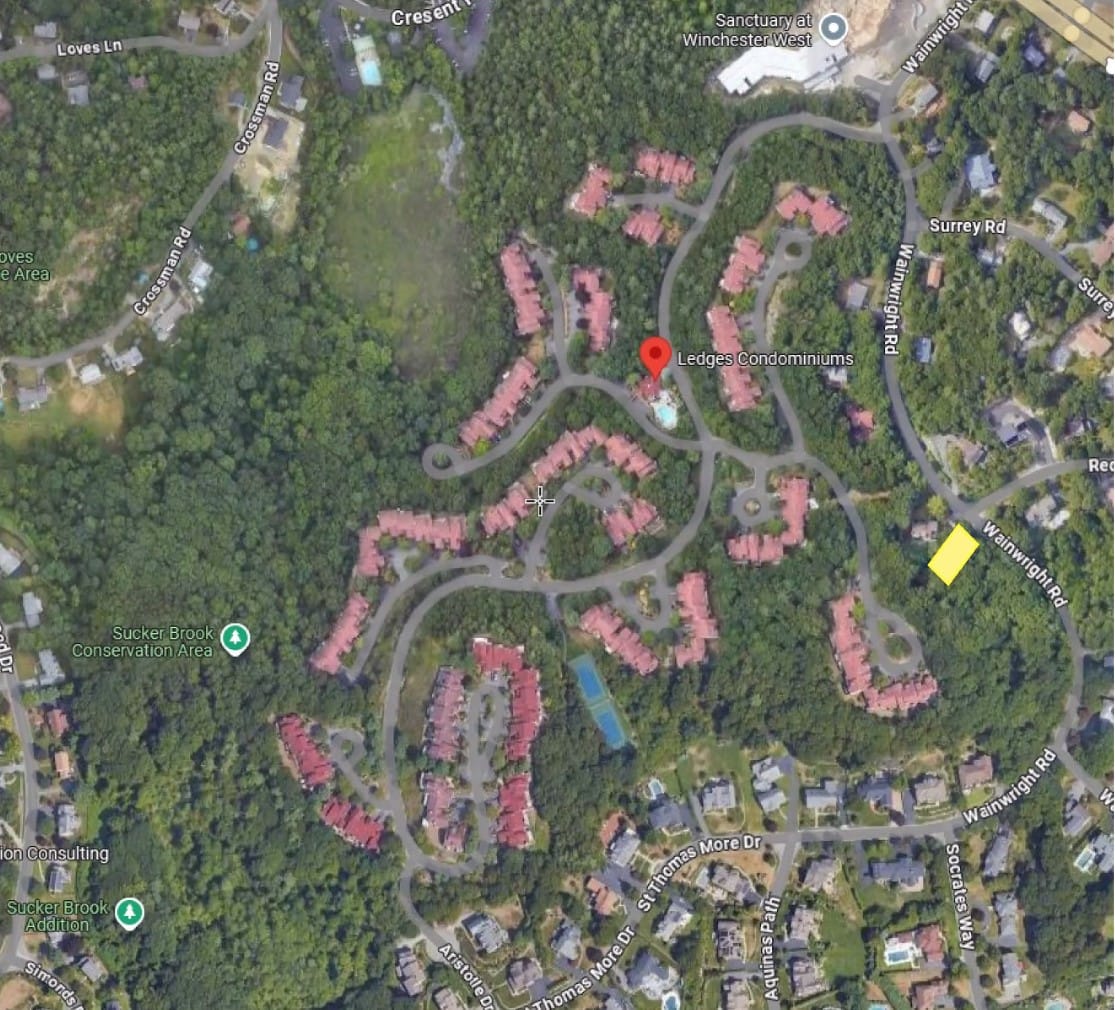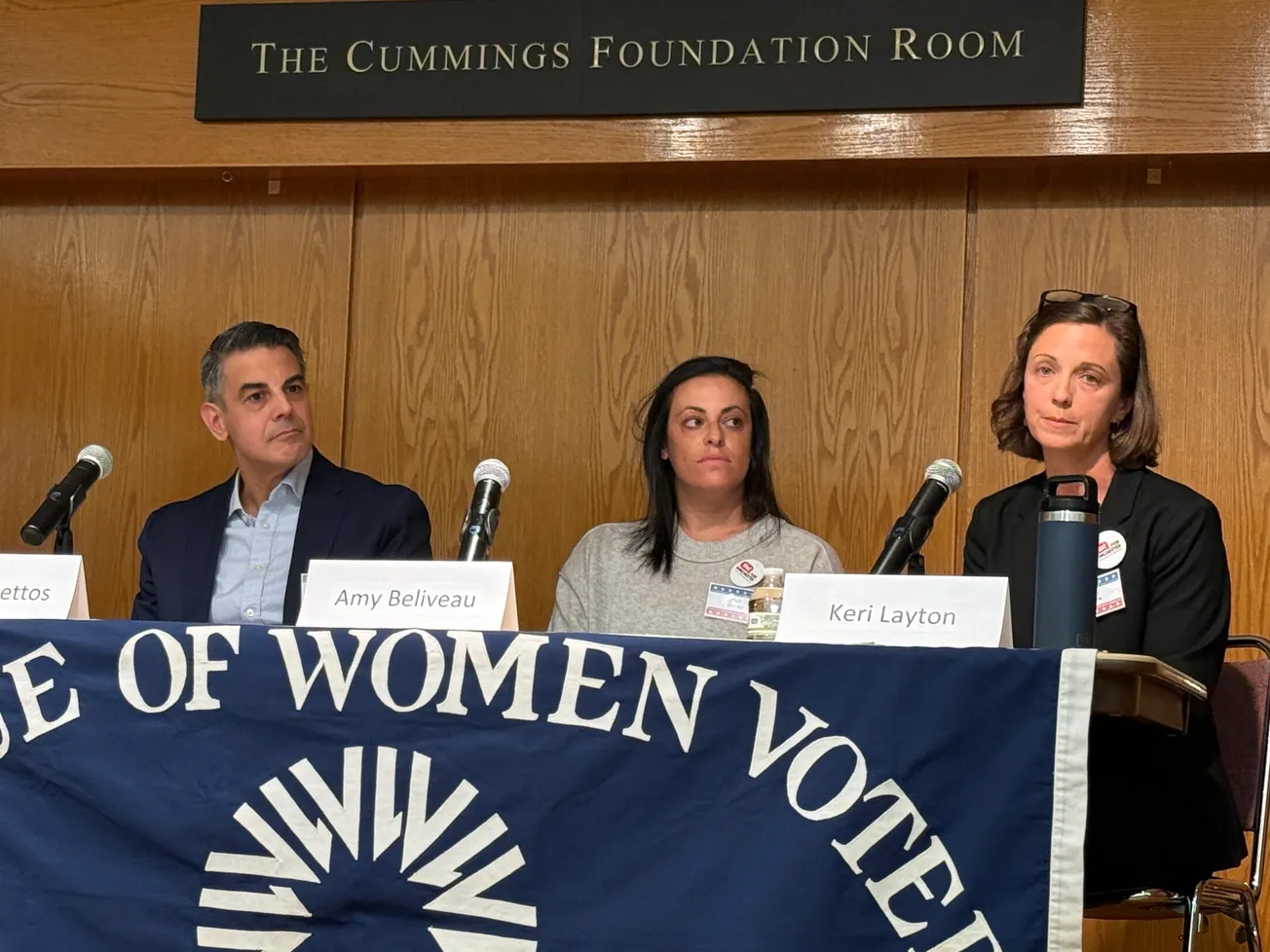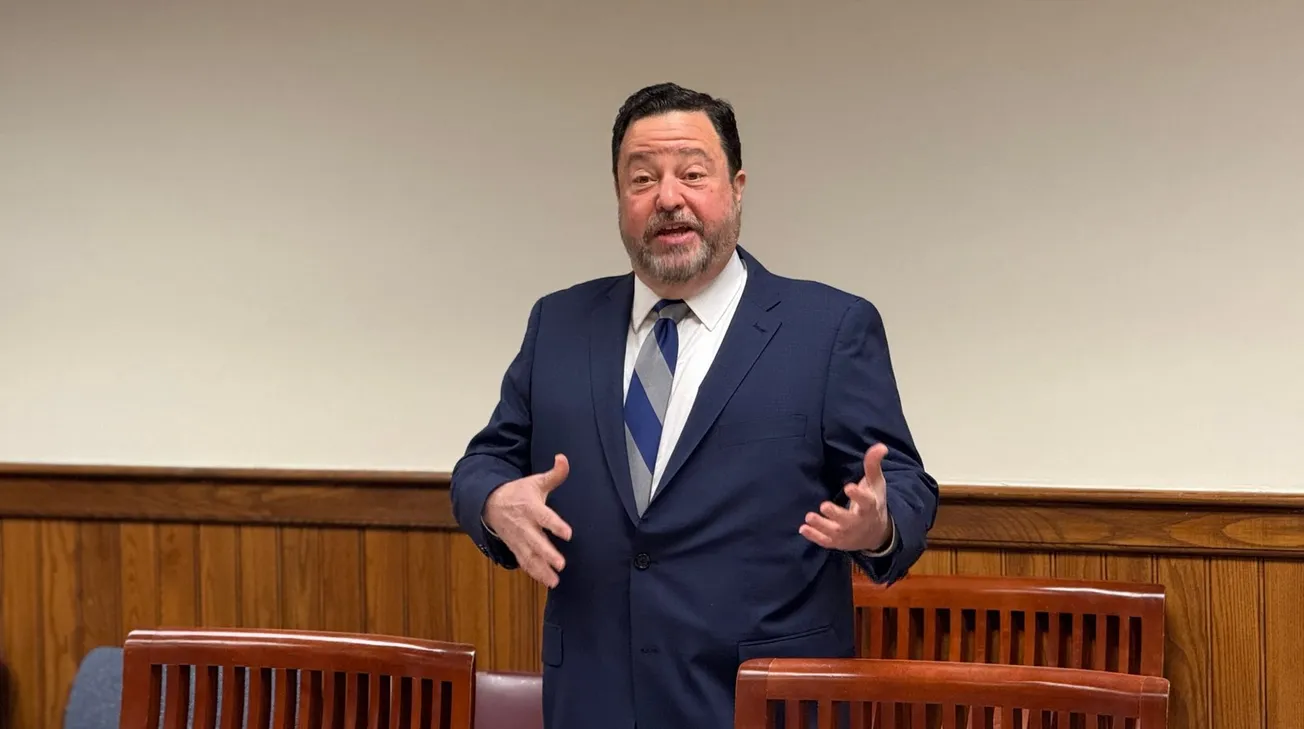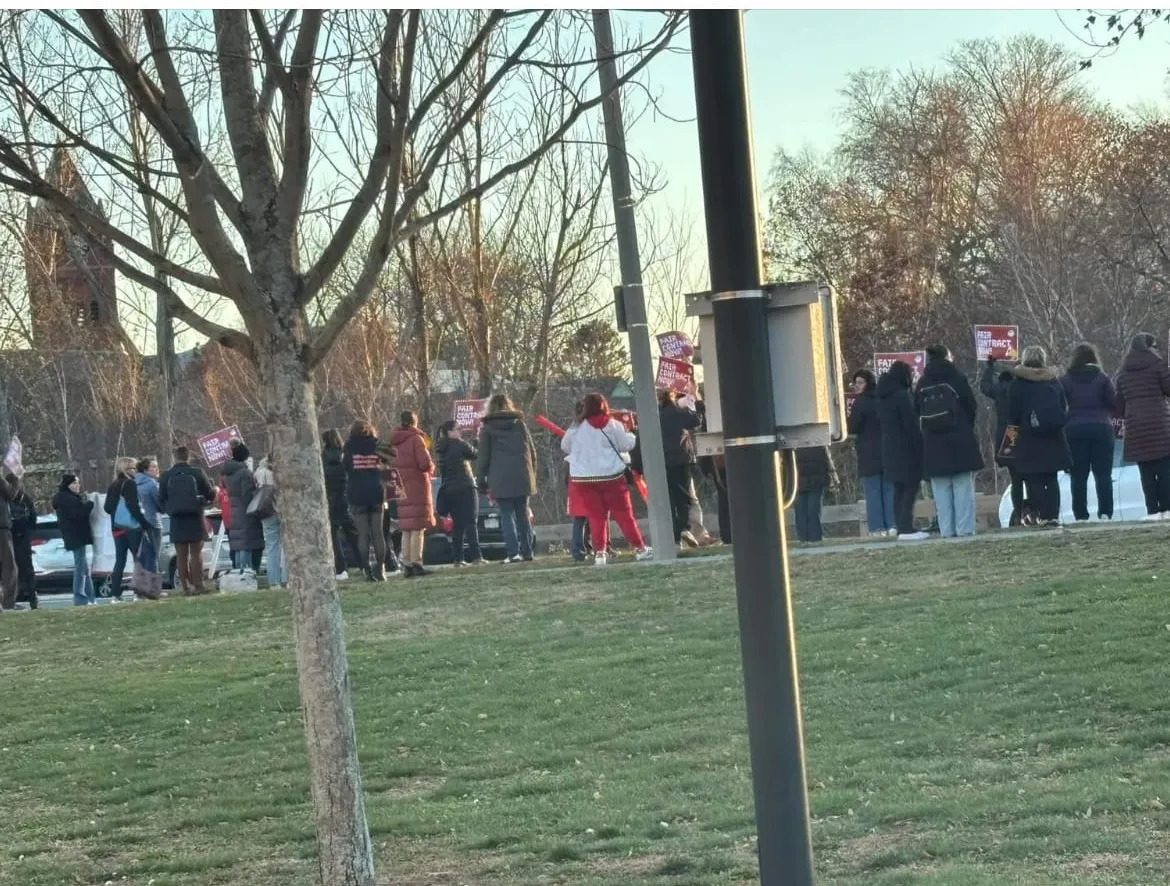Table of Contents
After being withdrawn at the Fall Town Meeting, The Ledges is once again on the spring agenda. But just like last time, officials are not supporting the petition.
The Planning Board on April 15 recommended unfavorable action on Article 6 at the upcoming Spring Town Meeting, which kicks off April 28.
Article 6 is a citizens petition by Richard Bartels to amend Winchester zoning by changing a portion of the property at 7 Wainright Road, known as The Ledges Condominiums, from a Planned Residential District (PRD) to a Residential District A (RDA-20). The change would rezone a 20,000-square foot piece of land owned by the 40ish-year-old condominium complex so it can be developed as a single-family home.
The Planning Board vote at the public hearing on zoning articles April 15 creates a possible ripple effect that may preclude Town Meeting from considering the matter at all.
“A problem arises because these are the same articles presented two years ago,” Town Counsel Jay Talerman explained. “Under zoning, you can’t do repeats within two years if there was no favorable action and it can’t be acted on by Town Meeting unless the Planning Board recommends favorable action. Then Town Meeting can take action, even if the recommendation is lukewarm.
“Otherwise, by recommending no action or unfavorable action, in my opinion, Town Meeting can’t act on it,” Talerman added. “Precedent doesn’t say how full-throated a recommendation for favorable action has to be. It could be tepid or full-throated. Either way, it would allow Town Meeting to act. If the Planning Board doesn’t recommend favorable action, it’s a barrier at Town Meeting. Statutes indicate you have to recommend favorable action for it to go forward.”
His sources include Town Meeting Time, a procedural guide compiled by the Massachusetts Moderator’s Association. Talerman was one of the authors of Town Meeting Time.

“It’s been suggested because the applicant didn’t seek a motion, there was no unfavorable action. Our opinion is to the contrary,” Talerman said. “There’s no such thing as removing something from a warrant. It could be removed beforehand, but once it’s on the warrant, it’s fair game and available for action. Any other person at Town Meeting could submit a motion on it.
“Precedent recognized by courts and common sense indicate if there’s anything other than positive action, it’s negative action,” Talerman added. “No action is treated as unfavorable action. An article not acted on fails. If you don’t move it, it fails. We looked up and down to see if there’s any leeway, but failure to take action is treated as unfavorable action.”
He further explained the two-year clock for resubmission would start after the Spring Town Meeting. However, if the article is not on the warrant, the clock would revert back to the last filing in November, which would allow The Ledges to come back in November 2026.
“What is the relevance of two years?” Planning Board member Keri Layton asked.
“My guess is it’s an effort to save Town Meeting from having to take up items that had recently failed,” Talerman answered.
“It would be disingenuous to make a recommendation just to forward it to Town Meeting,” Layton said.
Chair Brian Vernaglia, who voiced concerns about the article in November, said he saw the issue the same way.
“It’s awkward to vote for favorable action just to bring it to Town Meeting,” Vernaglia said. “I don’t think we should be gatekeepers for the project. I want to vote on the merits and based on the merits, I have a hard time supporting this. I’m concerned about rezoning for a private good, not a public good and this takes away open space.”
“What’s changed?” Ann Sera asked during comments from members of the public. “It was withdrawn in the fall because it was destined to fail. I don’t want them coming back hoping for a new Planning Board that doesn’t remember the arguments made. Any approval to allow Town Meeting to hear it should be qualified.”
Maura Sullivan disagreed with Talerman.
“Articles are withdrawn all the time,” she said. “Town Meeting can take it up with your recommendation in hand.”
Pamela Cort asked if the land could be developed under other regulations if Article 6 isn’t operational, such as the so-called anti-snob zoning law 40B, which allows developers to skirt local regulations if 25% of a development is affordable housing.
“I’d have to think about it,” Talerman answered. “For such a small piece of property, 40B would be a lot of work.”







